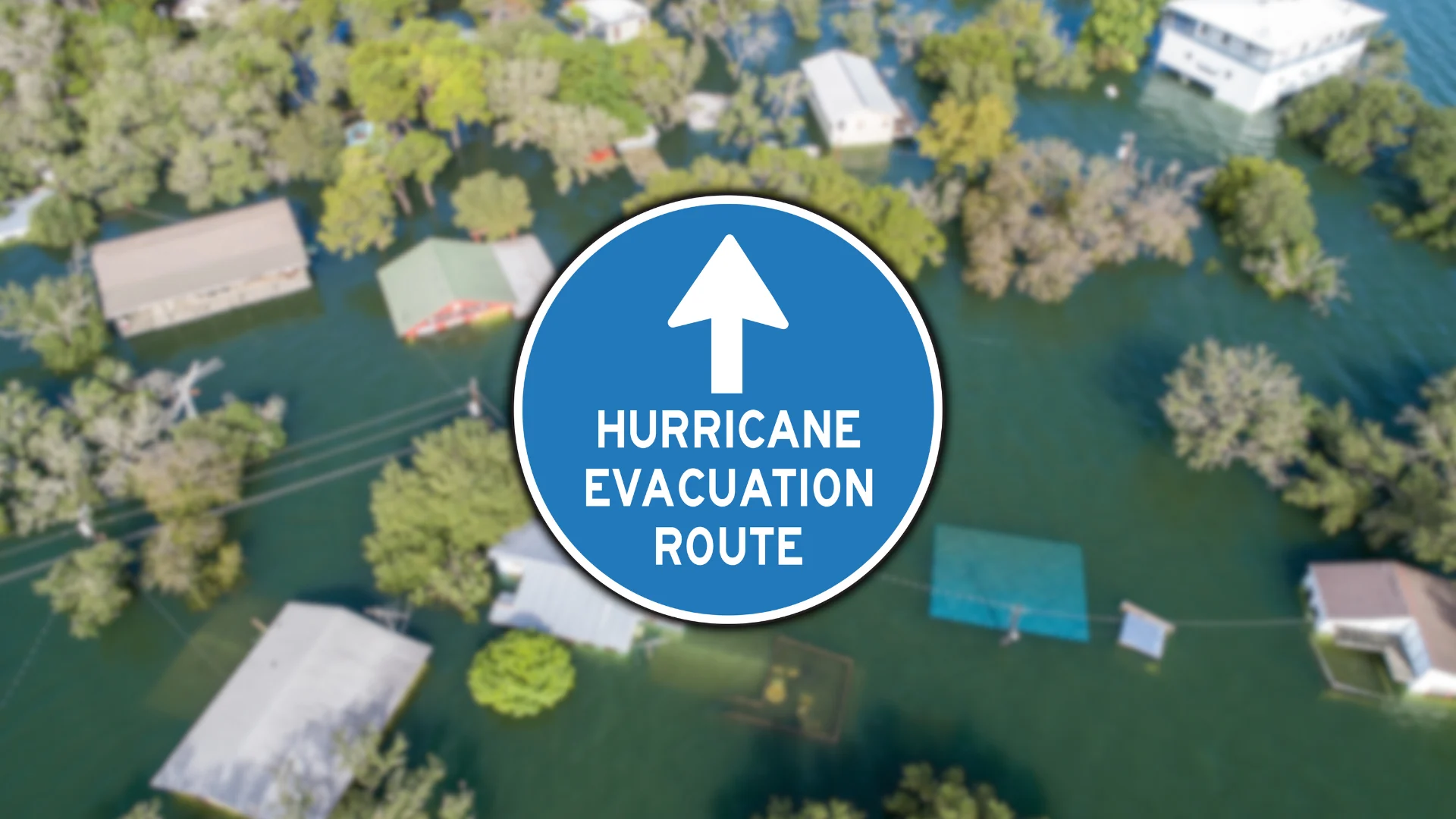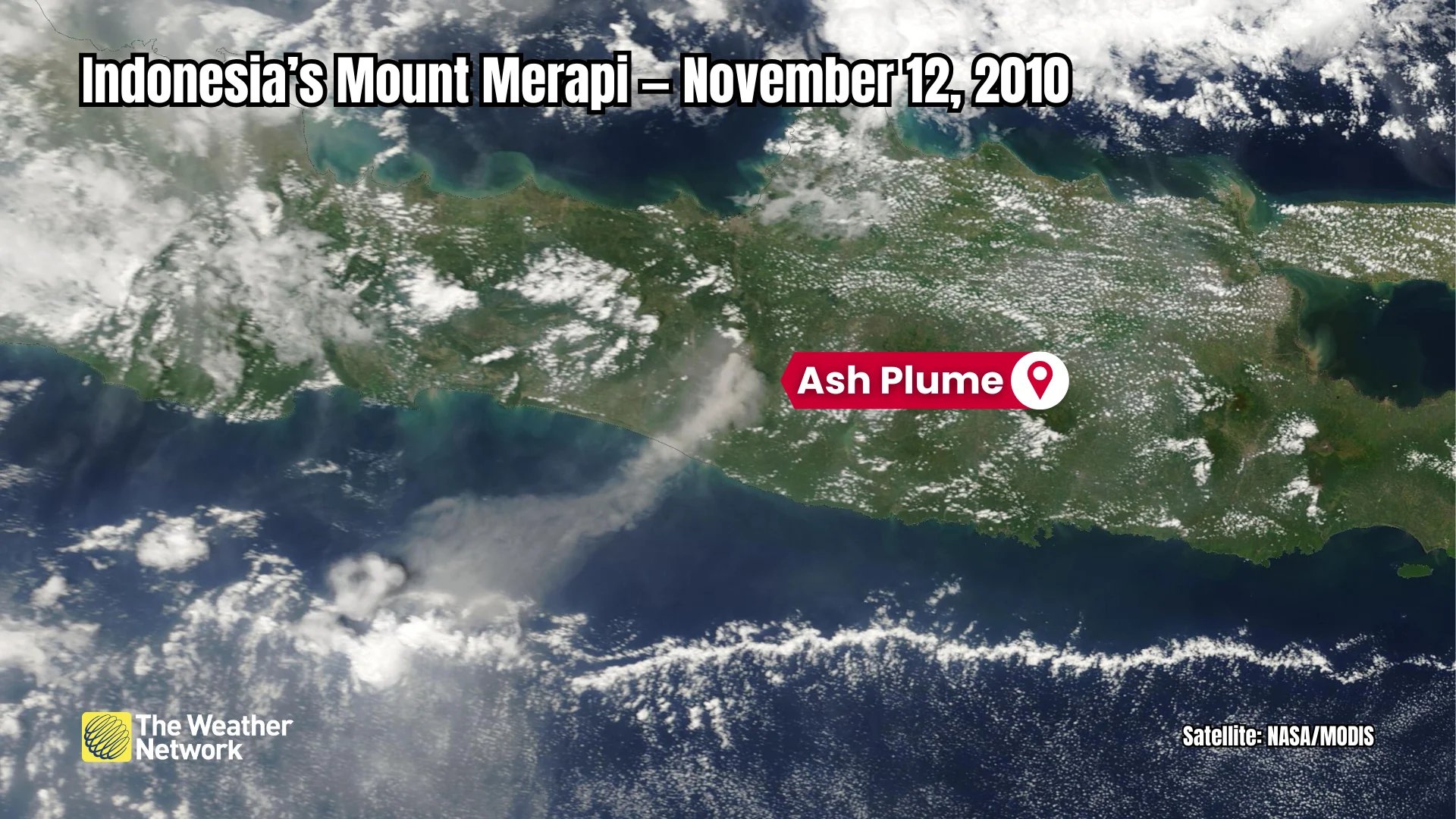
Why don’t people evacuate disasters? New study raises surprising explanations
Community responsibilities, political pressure, and perception of danger can play a role in deciding to flee potential disaster
Hurricane forecasts are better today than ever before. Conditions ripe for flooding can be predicted days in advance. Our smart devices are capable of alerting us the moment a severe weather warning is issued.
Despite all these lifesaving technological achievements, getting folks to evacuate ahead of a natural disaster remains a challenge. Why don’t some residents leave when they’re asked to do so?
One recent study took a deep dive into why people stay instead of fleeing—and some of the answers are surprising.
DON'T MISS: Tips to ensure you leave no animal behind when fleeing a wildfire
Evacuating ahead of disaster is a complex ordeal
The message before hurricanes, floods, and wildfires is often the same: Leave.
Getting out of harm’s way seems like common sense. But fleeing your home ahead of an impending disaster is a complicated decision fraught with potential downsides.
Even a short-term evacuation can be costly. Expenses such as travel, lodging, and food alone could run the average family thousands of dollars. That’s not to mention the potential for lost wages, or even losing one’s job.
Not everyone can evacuate in a timely manner. Low-income individuals, those who don’t drive, and folks living with disabilities often lack the resources to evacuate at all when floods, fires, or hurricanes threaten their communities.
But what about people who are fully able to evacuate, yet choose not to?
Three disasters offer unique perspectives
A new study published by the Yale School of the Environment shines a light on some of the factors that may play into a decision not to evacuate before a natural disaster.
Researchers explored three case studies from around the world:
Farmers on the slopes of an infamously volatile Indonesian volcano
Americans on the Gulf Coast who throw ‘hurricane parties’
Japanese residents’ decision-making during floods and mudslides
The surprising results show that there are often rational thought processes behind the decision not to flee potential disaster—ones that go far beyond the typical attribution to hubris or recklessness.
Mount Merapi’s meaningful eruptions
Indonesia’s Mount Merapi is one of the world’s most dangerous and active volcanoes. An eruption in October 2010 ultimately led to more than 300 fatalities throughout the region.

Despite the ever-present danger, many villagers still reside and farm on the volcano’s slopes. “They dwell beyond the point where lowland society fears to tread, but below the point where they themselves fear volcanic hazard,” the study notes. Residents see the benefits of living here as outweighing the risk of a hazardous eruption.
Volcanic eruptions here often carry deep spiritual and cultural meaning, potentially leading to the erosion or challenge of political support for leaders in charge at the time of the disaster.
These villagers remain put—and often resist government insistence to relocate elsewhere—not just because the ground there is fertile, but also that their presence in a high-danger zone applies political pressure to local governments to pay attention to their needs, which may otherwise be ignored without the publicity of the volcano's activity.
Hurricane parties on the Gulf Coast
Hurricane evacuations represent some of modern history’s largest relocation efforts outside of war zones. Hundreds of thousands of people might live in evacuation zones ahead of a major storm—especially along the U.S. Gulf Coast.

RELATED: Stuck in your car during a tornado? Here’s what you should do
Not everybody who can leave chooses to do so. Some folks stay behind, and a few may even throw a hurricane party. “During these gatherings,” the authors of the study wrote, “people come together to eat food before it spoils, cherish moments before seeking shelter, and build community before the storm arrives.”
Throwing a hurricane party in lieu of fleeing a storm’s fierce winds and surge can seem like pure recklessness. However, the study contends—citing decades of research into this very topic—that there are complex sociological factors behind a decision to celebrate rather than evacuate.
These events are often seen as a community-building opportunity. Quoting a sociologist who interviewed survivors of Hurricane Harvey's flooding, the authors shed some light on the decision-making process. Folks who threw and attended parties during Harvey “knew what to expect, what to do, and that they could hope for the best, but their homes were likely going to flood. They also knew [they] would help each other rebuild, yet again.”
Japanese floods reveal how people perceive danger
The researchers also analyzed a series of deadly floods and mudslides that struck Japan in July 2018, during which a significant number of people in danger zones didn’t evacuate despite adequate warnings from local officials.
The team’s findings highlight the complicated nature of how people perceive danger, a sense of urgency, and where their priorities may lie.
Many people lost their lives in the 2011 tsunami because they were helping vulnerable people evacuate instead of fleeing themselves. This sense of community extends to other disasters, as well.
They also found that the manner in which people received information may dictate their next moves. Rather than heeding initial warnings, many folks at risk during a natural calamity may wait for “phone calls from family members or visual changes in the landscape” to act instead, the researchers noted.
Header image created using graphics and imagery from Canva.
